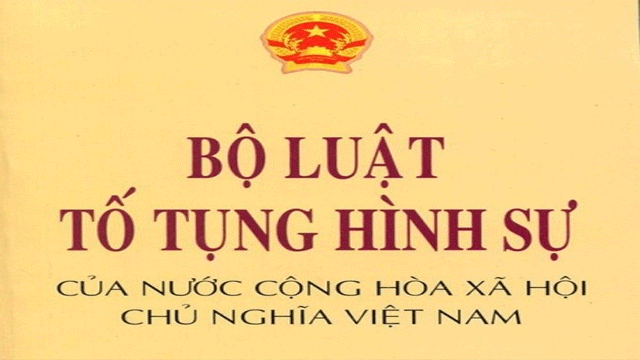Granting probation to offenders demonstrates the humanitarian nature of the law, enabling them to work, reform themselves, and become contributing members of society without needing to be isolated from the community. However, currently, there is still limited public understanding about probation. Many people confuse probation with other criminal sanctions and are unclear about the conditions for eligibility and ineligibility for probation.
Suspended Sentence: Understanding it Correctly? (Illustrative Image)
1. Distinguishing "Suspended Sentence" and "Non-Custodial Rehabilitation"
According to Article 1 of Resolution 02/2018/NQ-HDTP, a Suspended Sentence is a conditional exemption from serving a prison sentence, applied by the Court to an offender sentenced to imprisonment not exceeding 03 years, based on the offender's background and mitigating circumstances, where it is deemed unnecessary to enforce imprisonment.
Meanwhile, Article 36 of the current Criminal Code stipulates that non-custodial rehabilitation is a penalty heavier than fine and warning, applied for a period from 06 months to 03 years to offenders of minor felony or serious crimes who have stable employment or clear residence if it's deemed unnecessary to isolate the offender from society.
Both suspended sentences and non-custodial rehabilitation share the form where the convicted individual remains free under the supervision, management, and education of the local residence and workplace authorities. These are two criminal sanctions with many similarities, such as neither form isolates the convicted person from society. However, there are distinct differences between these two sanctions:
- A suspended sentence is a conditional exemption from serving imprisonment. The offender must meet the conditions specified in Article 2 of Resolution 02/2018/NQ-HDTP to be eligible for a suspended sentence. Essentially, the offender is sentenced to imprisonment but is exempted from serving the sentence upon meeting legal conditions. Along with the suspended sentence, the Court sets a probation period for the convicted person, which is twice the length of the imposed prison sentence, but not less than 01 year and not more than 05 years. Current law does not mandate the convicted individual to perform community service or deduct a portion of their income alongside the suspended sentence.
- Non-custodial rehabilitation is one of the penalties under Vietnamese criminal law. This penalty is applied for a period from 06 months to 03 years to offenders of minor to serious crimes who have stable employment or clear residence if isolation from society is deemed unnecessary. Offenders must fulfill certain obligations in accordance with the regulations on non-custodial rehabilitation and have 5% to 20% of their income deducted for the state. If the individual subjected to non-custodial rehabilitation is unemployed during the penalty, they must perform certain community service tasks.
2. Conditions for Applying Suspended Sentences to Convicted Individuals
Article 2 of Resolution 02/2018/NQ-HDTP stipulates that individuals sentenced to imprisonment may be considered for a suspended sentence if they meet the following conditions:
- Sentenced to imprisonment not exceeding 03 years.- Have good character.- Have at least 02 mitigating circumstances, including at least 01 mitigating circumstance stipulated in Clause 1, Article 51 of the Criminal Code, and no aggravating circumstances stipulated in Clause 1, Article 52 of the Criminal Code.- Have clear residence or stable employment for competent agencies and organizations to supervise and educate.- It is deemed unnecessary to enforce imprisonment if the offender is capable of self-rehabilitation and granting a suspended sentence doesn't pose a danger to society, nor adversely affects societal security, order, or safety.
3. Cases Ineligible for Suspended Sentences
The cases ineligible for suspended sentences are specified in Article 3 of Resolution 02/2018/NQ-HDTP. Individuals in the following scenarios are not eligible for a suspended sentence even if they meet the conditions specified in Article 2 of this Resolution:
- The offender is a mastermind, leader, commander, persistent objector, hooligan, uses cunning tricks, acts professionally, exploits their position for profit, or intentionally causes particularly serious consequences.- The individual commits the offense and absconds, with law enforcement agencies issuing a search warrant.- An individual on suspended sentence commits a new crime during the probation period or is judged for another crime committed before being granted a suspended sentence.- The individual is tried for multiple offenses in one trial, except for offenders under 18 years old.- The offender has committed multiple offenses, except for those under 18 years old.- The criminal is subject to recidivism or has a history of serious recidivism.
Duc Thao
 Article table of contents
Article table of contents










